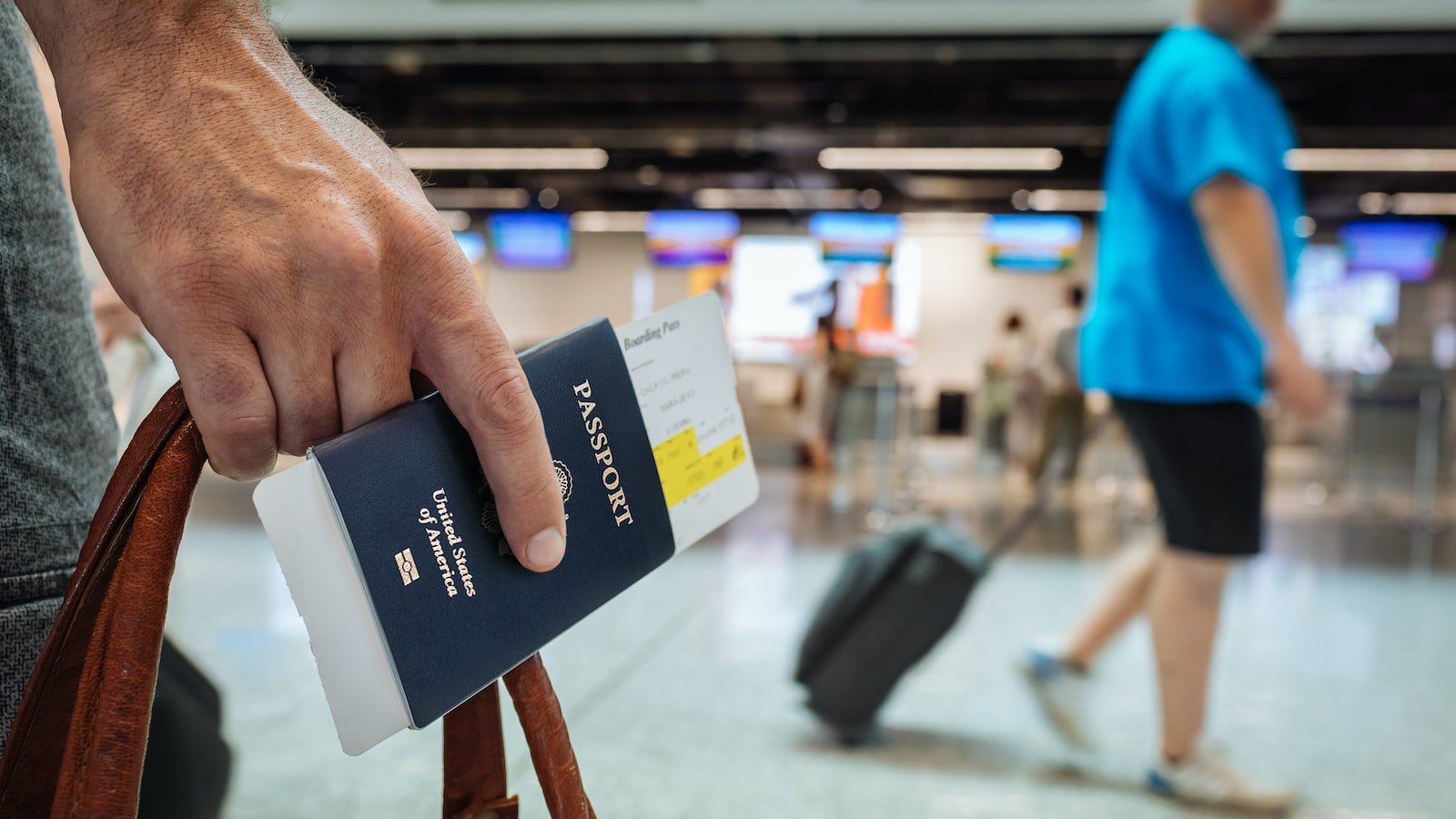As the world continues to embrace the era of remote work, the concept of working from anywhere has become more than just a dream. With the rise of digital nomads and the increasing demand for location-independent careers, the need for remote work visas and work permits has become a pressing concern for both individuals and governments alike. Whether you’re a wanderlust-driven professional seeking to explore new horizons or an employer looking to tap into a global talent pool, understanding the intricacies of remote work visas and work permits is crucial. In this article, we delve into the realm of remote work permits, unraveling the complexities and providing you with a comprehensive guide on how to navigate this ever-evolving landscape. So, fasten your seatbelts and get ready to embark on a journey that will unlock the doors to a world of remote work possibilities.
Table of Contents
- Understanding Remote Work Visas and Work Permits: A Comprehensive Guide
- Navigating the Legal Landscape: Key Considerations for Remote Workers
- Choosing the Right Visa: Exploring Options for Remote Work
- Essential Steps for Obtaining a Remote Work Permit
- Expert Tips for a Smooth Remote Work Visa Application Process
- Q&A
- Key Takeaways

Understanding Remote Work Visas and Work Permits: A Comprehensive Guide
Embarking on a remote work adventure in a foreign country can be an exciting and fulfilling experience. However, navigating the complex world of visas and work permits can often feel like a daunting task. This comprehensive guide aims to demystify the process and provide you with the essential information you need to make your remote work dreams a reality.
First and foremost, it’s crucial to understand the difference between a remote work visa and a work permit. A remote work visa is specifically designed for individuals who wish to work remotely for a company based in another country. On the other hand, a work permit allows you to work within a specific country, either for a local employer or as a freelancer.
When considering a remote work visa, it’s essential to research the specific requirements and eligibility criteria for each country. Some countries offer dedicated remote work visas, while others may have specific visa categories that accommodate remote workers. It’s important to note that these requirements can vary significantly, including factors such as income thresholds, proof of employment, and health insurance coverage.
Additionally, understanding the limitations and restrictions of each visa or work permit is crucial. Some visas may have time limits, requiring you to renew or extend your stay periodically. Others may restrict your ability to engage in certain types of work or limit your access to public services. It’s vital to thoroughly research and understand these conditions to ensure a smooth and compliant remote work experience.
Remember, each country has its own unique set of rules and regulations regarding remote work visas and work permits. It’s advisable to consult with immigration experts or seek guidance from official government sources to ensure accurate and up-to-date information. Armed with the knowledge provided in this comprehensive guide, you’ll be well-prepared to embark on your remote work journey with confidence and peace of mind.

Navigating the Legal Landscape: Key Considerations for Remote Workers
Working remotely has become increasingly common in today’s digital age, but it’s important for remote workers to be aware of the legal considerations that come with this arrangement. Here are some key factors to keep in mind:
- Employment status: Determine whether you are classified as an employee or an independent contractor. This distinction can have significant implications for your rights and benefits.
- Contractual agreements: Ensure that you have a clear and comprehensive contract in place with your employer or clients. This should outline your responsibilities, working hours, compensation, and any other relevant terms.
- Tax obligations: Understand the tax laws and regulations that apply to remote workers in your jurisdiction. This may involve filing taxes in multiple locations or dealing with specific deductions and exemptions.
- Intellectual property: Be aware of how your work is protected and who owns the rights to it. Clarify any intellectual property agreements to avoid potential disputes in the future.
- Confidentiality and data security: Take necessary precautions to protect sensitive information and ensure compliance with data protection laws. This includes using secure networks, encrypted communication tools, and following company policies.
- Health and safety: Although remote work offers flexibility, it’s important to prioritize your well-being. Create a comfortable and ergonomic workspace, take regular breaks, and establish boundaries between work and personal life.
By considering these key factors, remote workers can navigate the legal landscape with confidence and ensure a smooth and compliant working experience.

Choosing the Right Visa: Exploring Options for Remote Work
When it comes to remote work, the world is your oyster. With the rise of digital nomadism, more and more individuals are seeking opportunities to work from anywhere in the world. However, navigating the complex world of visas can be daunting. Here, we explore some options to help you choose the right visa for your remote work adventure.
1. Tourist Visa: If you plan to work remotely for a short period, a tourist visa might be the simplest option. Many countries allow tourists to engage in remote work as long as it doesn’t involve local employment. However, keep in mind that this option usually comes with time restrictions, typically ranging from a few weeks to a few months.
2. Digital Nomad Visa: Some countries have recognized the growing trend of remote work and have introduced specific visas tailored for digital nomads. These visas often offer longer stays and more flexibility for remote workers. They may require proof of income, health insurance, and a commitment to not seek local employment.
3. Freelancer Visa: Certain countries have introduced freelancer visas, designed for individuals who work independently or provide services remotely. These visas often have specific requirements, such as proof of income, a business plan, or a minimum stay commitment. They provide a legal framework for freelancers to work and reside in a foreign country.
Remember, visa regulations can vary greatly from country to country, so it’s crucial to research and understand the specific requirements and limitations of each option. Whether you choose a tourist visa, a digital nomad visa, or a freelancer visa, make sure to comply with local laws and regulations to ensure a smooth and legal remote work experience.
Essential Steps for Obtaining a Remote Work Permit
Embarking on a remote work journey can be an exciting and liberating experience. However, before you can fully embrace the digital nomad lifestyle, it’s crucial to ensure you have all the necessary permits in place. Here are some essential steps to follow when obtaining a remote work permit:
- Research the requirements: Start by researching the specific requirements for obtaining a remote work permit in your desired destination. Each country may have different regulations and eligibility criteria, so it’s important to gather accurate information.
- Prepare your documentation: Once you have a clear understanding of the requirements, gather all the necessary documentation. This may include proof of employment, a detailed work plan, financial statements, and a valid passport. Make sure to double-check the specific documents needed for your chosen destination.
- Submit your application: After preparing your documentation, submit your remote work permit application to the appropriate authorities. Pay close attention to any deadlines and ensure that all forms are filled out accurately and completely.
- Follow up and be patient: Obtaining a remote work permit can sometimes be a lengthy process. It’s important to follow up with the authorities regularly and be patient throughout the waiting period. Stay organized and keep track of any updates or additional requirements that may arise.
- Comply with local regulations: Once you receive your remote work permit, familiarize yourself with the local regulations and laws of your destination. Respect the rules and guidelines set forth by the authorities to ensure a smooth and enjoyable remote work experience.
By following these essential steps, you’ll be well on your way to obtaining a remote work permit and embarking on your dream of working from anywhere in the world. Remember, each country may have its own unique process, so it’s crucial to do thorough research and stay informed throughout the application process.
Expert Tips for a Smooth Remote Work Visa Application Process
When it comes to applying for a remote work visa, navigating the process can sometimes feel overwhelming. However, with the right guidance and preparation, you can ensure a smooth and successful application. Here are some expert tips to help you along the way:
- Research the requirements: Before diving into the application process, it’s crucial to thoroughly research the specific requirements for the remote work visa you are applying for. Each country may have different criteria, so make sure you understand what documents, qualifications, and fees are needed.
- Organize your documents: Keeping your documents in order is essential for a hassle-free application. Create a checklist of all the required paperwork, such as your passport, proof of employment, and any additional supporting documents. Make sure they are up to date and easily accessible when needed.
- Seek professional advice: If you’re unsure about any aspect of the remote work visa application process, don’t hesitate to seek expert advice. Consulting with an immigration lawyer or an experienced visa consultant can provide valuable insights and ensure you are on the right track.
- Prepare a compelling cover letter: A well-crafted cover letter can greatly enhance your chances of approval. Use this opportunity to highlight your skills, experience, and why you are the perfect candidate for a remote work visa. Tailor your letter to showcase how your remote work will benefit the country you are applying to.
- Double-check your application: Before submitting your application, take the time to review it thoroughly. Ensure all information is accurate, and there are no errors or omissions. Pay attention to details such as spelling, dates, and signatures. A meticulous review can prevent unnecessary delays or rejections.
By following these expert tips, you can streamline your remote work visa application process and increase your chances of a successful outcome. Remember to stay organized, seek guidance when needed, and present a compelling case for why you are the ideal candidate for a remote work visa. Good luck!
Q&A
What is a remote work visa?
A remote work visa is a type of visa that allows individuals to work remotely for a company located in a different country. It enables individuals to legally work and reside in a foreign country while performing their job duties remotely.
Do I need a remote work visa if I am working for a foreign company from my home country?
No, if you are working for a foreign company from your home country, you typically do not need a remote work visa. As long as you are not physically present in the foreign country where the company is located, you can work remotely without a visa.
What are the benefits of obtaining a remote work visa?
Obtaining a remote work visa allows you to legally work and reside in a foreign country while enjoying the benefits of living in a different culture. It also provides you with the opportunity to travel and explore the country while maintaining your employment.
How can I apply for a remote work visa?
The application process for a remote work visa varies depending on the country you wish to work in. Generally, you will need to provide documentation such as proof of employment, a valid passport, and sometimes a letter of invitation from your employer. It is advisable to consult the embassy or consulate of the country you are interested in for specific application requirements.
Can I work remotely without a work permit?
In some cases, you may be able to work remotely without a work permit, especially if you are not physically present in the country where the company is located. However, it is important to research and understand the legal requirements of both your home country and the country where the company is based to ensure compliance with immigration laws.
What are the potential challenges of obtaining a remote work visa?
Some potential challenges of obtaining a remote work visa include navigating complex immigration processes, meeting specific eligibility criteria, and potentially facing language barriers. Additionally, visa processing times and costs can vary, so it is important to plan ahead and be prepared for potential delays or expenses.
Can I switch from a tourist visa to a remote work visa?
In most cases, it is not possible to switch from a tourist visa to a remote work visa while staying in a foreign country. It is advisable to apply for the appropriate visa before traveling to the country where you intend to work remotely to avoid any legal complications.
Are there any restrictions on the type of work I can do with a remote work visa?
Restrictions on the type of work you can do with a remote work visa vary depending on the country. Some countries may have specific regulations or limitations on the industries or professions that remote workers can engage in. It is important to research and understand the specific restrictions of the country you wish to work in.
Key Takeaways
As we conclude this journey through the intricacies of remote work visas and work permits, we hope you have gained a deeper understanding of the opportunities and challenges that lie ahead. Navigating the ever-evolving landscape of remote work can be a daunting task, but armed with the right knowledge and resources, you can confidently embark on this exciting adventure.
Remember, the world is your oyster, and remote work visas and permits can be the key to unlocking a world of possibilities. Whether you dream of sipping coffee in a bustling café in Paris, or immersing yourself in the vibrant culture of Tokyo, the choice is yours.
While the process may seem overwhelming at times, it is important to approach it with patience and perseverance. Research, preparation, and a willingness to adapt are the pillars upon which your remote work journey will be built. Embrace the challenges as opportunities for growth, and let the experience shape you into a more resilient and adaptable professional.
As you embark on this remote work adventure, remember to stay informed about the latest regulations and requirements. Keep an eye on government websites, consult with immigration experts, and connect with fellow remote workers who have gone through similar experiences. Building a network of support and knowledge will be invaluable as you navigate the ever-changing landscape of remote work visas and permits.
Finally, always remember to embrace the beauty of the journey itself. Remote work visas and permits are not just bureaucratic hurdles; they are gateways to new cultures, experiences, and personal growth. Take the time to savor the moments, immerse yourself in the local communities, and forge connections that will last a lifetime.
So, dear reader, as you set forth on your remote work adventure, may your path be filled with exciting opportunities, enriching experiences, and a sense of fulfillment. The world is waiting for you, and with the right mindset and preparation, you can make your remote work dreams a reality. Bon voyage!
As an affiliate, my content may feature links to products I personally use and recommend. By taking action, like subscribing or making a purchase, you’ll be supporting my work and fueling my taco cravings at the same time. Win-win, right?
Want to read more? Check out our Affiliate Disclosure page.